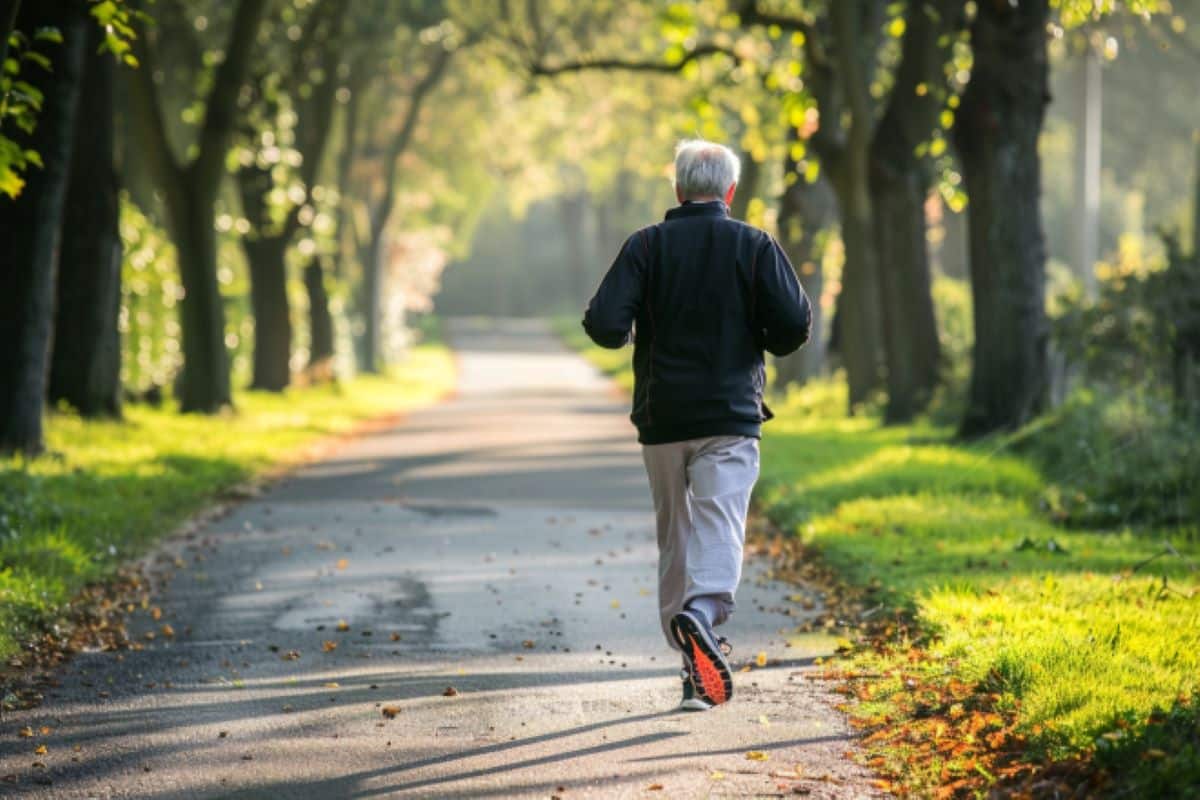Summary: A new study shows that exercise can reverse aging effects in the brain. Researchers found that physical activity alters gene expression in microglia, making them resemble those of younger brains.
Exercise also helps reduce harmful T cell presence in the hippocampus, enhancing memory and learning. These findings highlight the importance of exercise for maintaining cognitive health during aging.
Key Facts:
- Gene Expression: Exercise reverts aged microglia gene expression to youthful patterns.
- Microglia Role: Essential for exercise-induced formation of new neurons in the hippocampus.
- T Cells Reduction: Exercise prevents/reduces T cell presence in the aging hippocampus.
Source: Wiley
New research published in Aging Cell provides insights into how exercise may help to prevent or slow cognitive decline during aging.
For the study, investigators assessed the expression of genes in individual cells in the brains of mice. The team found that exercise has a significant impact on gene expression in microglia, the immune cells of the central nervous system that support brain function.
Specifically, the group found that exercise reverts the gene expression patterns of aged microglia to patterns seen in young microglia.
Treatments that depleted microglia revealed that these cells are required for the stimulatory effects of exercise on the formation of new neurons in the brain’s hippocampus, a region involved in memory, learning, and emotion.
The scientists also found that allowing mice access to a running wheel prevented and/or reduced the presence of T cells in the hippocampus during aging. These immune cells are not typically found in the brain during youth, but they increase with age.
“We were both surprised and excited about the extent to which physical activity rejuvenates and transforms the composition of immune cells within the brain, in particular the way in which it was able to reverse the negative impacts of aging,” said co–corresponding author Jana Vukovic, PhD, of The University of Queensland, in Australia.
“It highlights the importance of normalizing and facilitating access to tailored exercise programs. Our findings should help different industries to design interventions for elderly individuals who are looking to maintain or improve both their physical and mental capabilities.”
About this aging, exercise, and cognition research news
Author: Sara Henning-Stout
Source: Wiley
Contact: Sara Henning-Stout – Wiley
Image: The image is credited to Neuroscience News
Original Research: Open access.
“Exercise rejuvenates microglia and reverses T cell accumulation in the aged female mouse brain” by Jana Vukovic et al. Aging Cell
Abstract
Exercise rejuvenates microglia and reverses T cell accumulation in the aged female mouse brain
Slowing and/or reversing brain ageing may alleviate cognitive impairments. Previous studies have found that exercise may mitigate cognitive decline, but the mechanisms underlying this remain largely unclear.
Here we provide unbiased analyses of single-cell RNA sequencing data, showing the impacts of exercise and ageing on specific cell types in the mouse hippocampus.
We demonstrate that exercise has a profound and selective effect on aged microglia, reverting their gene expression signature to that of young microglia.
Pharmacologic depletion of microglia further demonstrated that these cells are required for the stimulatory effects of exercise on hippocampal neurogenesis but not cognition.
Strikingly, allowing 18-month-old mice access to a running wheel did by and large also prevent and/or revert T cell presence in the ageing hippocampus.
Taken together, our data highlight the profound impact of exercise in rejuvenating aged microglia, associated pro-neurogenic effects and on peripheral immune cell presence in the ageing female mouse brain.

Sarah Carter is a health and wellness expert residing in the UK. With a background in healthcare, she offers evidence-based advice on fitness, nutrition, and mental well-being, promoting healthier living for readers.








